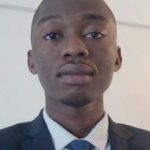
In Nigeria, primary education is free and compulsory (in principle). However, in places like Waru, an internally displaced persons (IDP) settlement in Abuja, children of primary school age do not go to school. The reason is simple: their parents cannot afford other non-tuition fees levied on them by the school authorities. The 1,904 out-of-school children in Waru IDP settlement are only a small fraction of over 13 million out-of-school children in Nigeria.
Who are the left behind in Quality Education in Nigeria?
Nigeria has the highest number of out-of-school children in the world, and children living with disabilities account for a significant part of that population. Disabled pupils require specialised training and teaching procedures designed to meet their unique learning needs, such as sign language for the deaf or braille for the blind. However, Nigeria’s educational system is not inclusive of children with special needs. For example, learning outcomes of disabled pupils are not tested in standard literacy assessment in the demographic and health surveys (DHS). The few special schools that exist are found to be socially dysfunctional and irrelevant to the total well-being of persons with disabilities.
Another group excluded from quality education in Nigeria are children from nomadic groups, comprising pastoralists and migrant fishing groups. Over 5.2 million nomadic children are out-of-school despite government interventions, such as the National Nomadic Education Commission (NNEC). Constant mobility of this group in search for economic opportunities is a key challenge. With frequent migration across states, policy interventions by the state and local governments are ineffective.
Over 7 million students in the Almajiri education system in Northern Nigeria are also excluded from quality education. Historically, the system was set up to train children and youth (from 5 to 22 years old) in Qur’anic literacy. However, the system has limited capacity to deliver basic learning due to lack of integration with the formal education system and inadequate support from the government. In the absence of supervision from the government, students are mostly used to collect alms in support of their teachers’ livelihoods.
Violent conflicts in Nigeria have led to the displacement of over 1.7 million people, and of this population, 56% are children (UNICEF, 2016). The displacement has significantly increased the problem of access to education, especially in Northern Nigeria, where human development is lowest in Nigeria. The efforts of government, donors, and foundations to provide emergency education opportunities for children in IDP camps fall short of delivering quality learning. Firstly, the environment is hardly conducive to learning. Secondly, the psychosocial effects of violence on the children affect their preparedness.
Why are they left behind?
Three reasons stand out:
Exclusive policies: The design and management of primary and secondary schools in Nigeria are non-inclusive and inaccessible to children with disabilities. Also, the Almajiri education system is not integrated with the formal education system. This is a setback for the achievement of Sustainable Development Goal 4 (SDG4) goal of leaving no one behind in terms of access to quality education.
Arms proliferation: The proliferation of small arms and light weapons has become a significant challenge for Nigeria. It has led to increased insecurity in numerous parts of the country, fueling communal clashes, criminal activities, insurgency and instability. Such violence has been persistent over the years due to global arms proliferation and deficiencies in the national security and border infrastructure. The violent activities carried out by Boko Haram, which led to the displacement of millions, is further enabled by the use of small arms and light weapons. Over 1,500 schools were destroyed between 2014 and 2017 in North-east Nigeria. There were at least 1,280 casualties among teachers and students. Additionally, over 1,000 students have been kidnapped from their schools by the insurgents.
Poverty: Although basic education is free in Nigeria, students are required to pay a variety of fees, such as sports and sanitation fees. This reduces the likelihood of economically disadvantaged children, such as IDPs, to gain access to schooling.
Way Forward
Our findings within Southern Voice’s “State of the SDGs” project have helped us come up with recommendations for the various actors. To increase access to and improve education in Nigeria, we propose the following:
To the Government: There is substantial scope for the review of the educational system to make it more inclusive. Educational policies should be carefully designed, taking into consideration all groups that are currently unable to access quality education in Nigeria. Increased funding is needed in the sector for the provision of basic needs, like infrastructure/school facilities.
To the international community: Arms proliferation is an enabler of violent conflict. There is a need for enhanced efforts by states and multilateral agencies to work collaboratively to curb arms’ proliferation. This can be done through better accounting of arms trade, as well as control of illegal arms trade enablers, such as illicit financial flows and porous borders.
Quality education is a crucial enabler for sustainable growth and development across nations. Nigeria faces a dual task:
- improving education access to more than 13 million out-of-school children
- and ensuring that all students get quality education.
The government needs to identify those excluded from quality education, as well as work with global actors, to design an effective policy and address the challenges of accessing quality education in Nigeria. With our research, we hope to contribute to achieving these goals.


